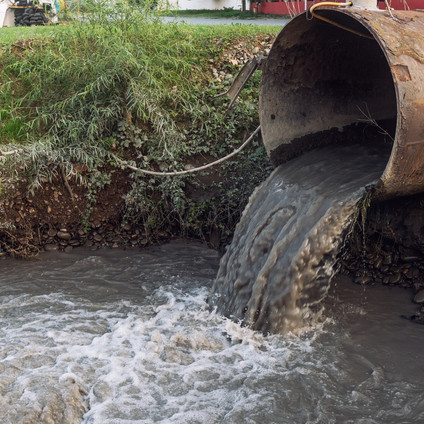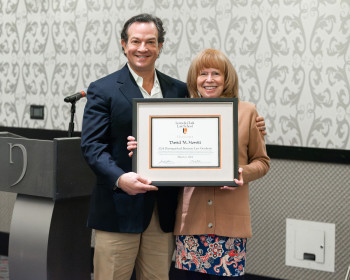Earthrise Secures Better Regulation of Industrial Stormwater Permits
Open gallery

Lewis & Clark Law School’s Earthrise Law Center, working on behalf of its clients Columbia Riverkeeper and Northwest Environmental Defense Center (NEDC), successfully settled a lawsuit challenging Oregon’s general permit for discharges of industrial stormwater on September 20.
“This settlement puts Oregon back on course towards becoming a national leader in confronting stormwater pollution,” said Jamie Saul, assistant clinical professor and attorney with Earthrise.“Under this agreement, the Oregon Department of Environmental Quality (DEQ) will use the best available science to develop enforceable, numeric limits for the toxic pollutants copper, lead, zinc, and total suspended solids (TSS) found in industrial stormwater.”
Earthrise filed suit in September 2017 in Multnomah County Circuit Court, alleging that DEQ’s industrial stormwater general permit, called the “1200-Z Permit,” failed to include adequate limits for toxics and failed to require monitoring and reporting sufficient to keep DEQ and the public aware of stormwater pollution events.
Two Lewis & Clark Law School and Earthrise clinic alums worked closely with Saul on the lawsuit and settlement: Mark Riskedahl ’00 of Northwest Environmental Defense Center (NEDC) and Lauren Goldberg ’08 of Columbia Riverkeeper.
The 1200-Z Permit regulates over 800 industrial sites in Oregon where runoff is often exposed to heavy machinery, chemical spills, or oil and gas leaks before carrying toxics and other harmful pollutants to nearby rivers and streams.
“Prior versions of the 1200-Z Permit have failed to ensure that state water quality standards are attained, largely due to the use of a “one size fits all” general permit,” said Saul. “It doesn’t take the relative water quality of the receiving water into account, it has insufficient monitoring requirements, and insufficient agency resources are dedicated to inspections and enforcement.”
Under the terms of the settlement, DEQ will make a number of near-term improvements to the permit, followed by a two-year process to develop scientifically sound, numeric limitations for discharges of several toxic pollutants found in industrial stormwater that are harmful to fish and other aquatic life. DEQ has also committed to develop a methodology to calculate site-specific limits on pollution discharges to so-called “impaired waters”–waters that do not meet state water quality standards–and, when appropriate, to impose those limits on both new and existing dischargers of industrial stormwater.
Earthrise is confident that this process will lead to a revised 1200-Z Permit that, for the first time ever, imposes clear, enforceable, numeric limits on copper, lead, zinc, and TSS. “Both California and Washington use numeric limits in their industrial stormwater permits, but only for certain pollutants and certain waters,” Saul said. “As a result of this settlement, the 1200-Z Permit has the potential to require numeric limits state-wide, depending on the results of DEQ’s analysis.”
Earthrise Law Center is one of seven clinics at Lewis & Clark Law School and focuses its attention on national environmental issues of air, water, climate change, endangered species and public lands.
Law Communications is located in room 304 of Legal Research Center (LRC) on the law Campus.
MSC: 51
email jasbury@lclark.edu
voice 503-768-6605
Cell: 626-676-7923
Assistant Dean,
Communications and External Relations, Law School
Judy Asbury
Law Communications
Lewis & Clark Law School
10101 S. Terwilliger Boulevard MSC 51
Portland OR 97219

